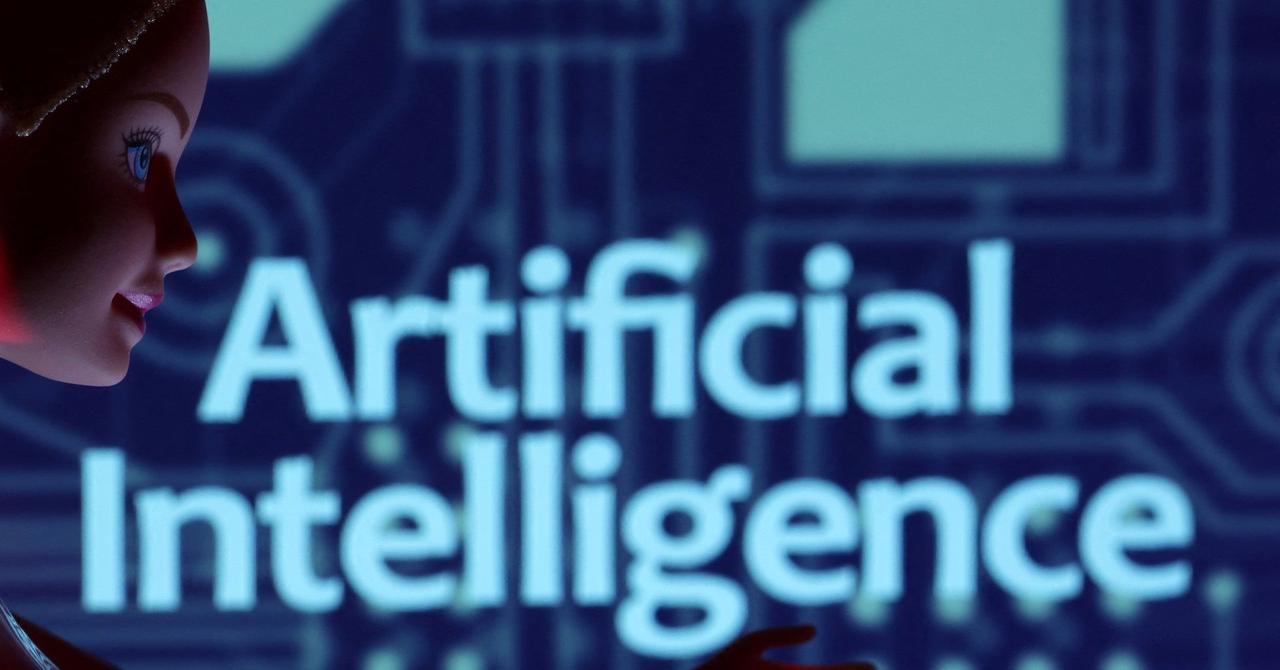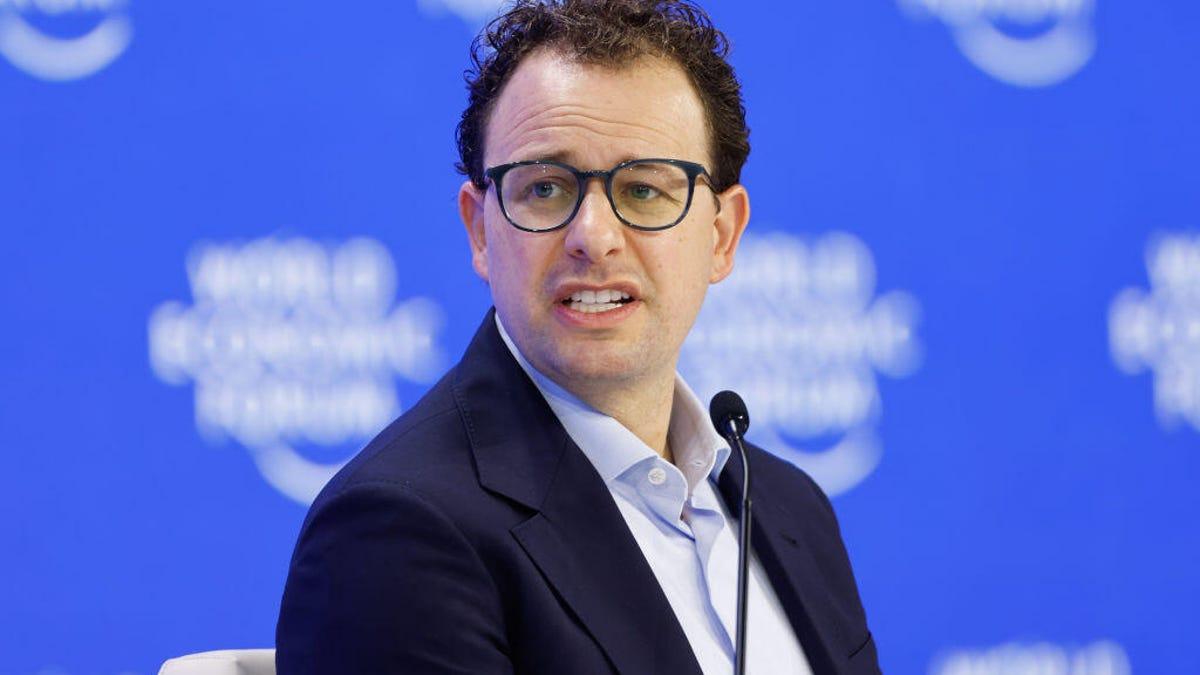AI Experts and Public Diverge on Job Market Impact: Cashiers, Journalists, and Factory Workers Most at Risk
4 Sources
4 Sources
[1]
These jobs are at risk of disappearing in the next 20 years, AI experts say
Experts who study or work with AI are much more positive and optimistic about how the technology will improve jobs and the economy compared with members of the general public, according to a new report from Pew Research Center. But many acknowledge the technology will lead to some job loss in the future. Overall, a majority, 56%, of AI experts say the technology will have a positive impact on the U.S. in the next 20 years, compared with just 17% of U.S. adults. Experts overwhelmingly believe AI will have a positive impact on how people do their jobs in the next 20 years, and are more likely to believe it will boost the overall economy in that timeframe. That's based on a survey of over 1,000 AI experts who conduct research or work in the field, and a separate survey of over 5,400 U.S. adults. Experts are generally less concerned than average workers that AI will lead to fewer jobs overall but acknowledge that certain occupations are more likely to be impacted. When considering where AI is likely to lead to fewer jobs, experts said some roles most at risk in the next 20 years include: Workers tend to agree with experts about at-risk jobs, except when it comes to truckers: just 33% of the general public believe AI will lead to fewer truck drivers in the future. Experts surveyed in the report said truck driving jobs are primed for disruption by AI as driverless vehicle technology improves, says Jeff Gottfried, Pew's associate director of research.
[2]
Americans worry AI is coming for these jobs
A Pew Research survey shows that Americans and experts agree on some jobs they think will be most affected by artificial intelligence. The boom of artificial intelligence has ignited a wave of new possibilities, but it's also stirring fears among many Americans about their jobs. One of the main concerns is that AI could put humans out of work, and new data shows which jobs people worry about the most. So who's likely at risk? Seventy-three percent of U.S. adults think that AI will probably lead to fewer jobs for cashiers in the next 20 years. Fifty-nine percent say journalists, 67 percent say factory workers, and 48 percent say software engineers, according to a survey from the Pew Research Center. AI experts who were also surveyed mostly agree with the public on those positions, though there are some jobs where they differ. Sixty-two percent of AI experts, versus 33 percent of the public believe AI will result in job losses for truck drivers. But Molly Kinder, a fellow at the Brookings Institution who has been examining the impact of generative AI on work, says some of these opinions are conflating old automation with what generative AI can do. "As a country, our narrative about AI and work is still centered on yesterday's automation," Kinder said. "Generative AI is not your grandparents' automation. It's moving up the skill chain ... in ways I don't think the public is fully aware of." The difference boils down to the fact that old automation heavily hit blue collar jobs -- think machines that could accelerate manufacturing. But generative AI is going to have a big impact on white collar work because it's able to summarize complex and lengthy documents, crunch large sets of data and interact conversationally. Kinder worked with colleagues to forecast which jobs are most exposed to generative AI based on the tasks the technology does best. Their research suggests the most exposed jobs are in office and administrative support, legal, sales, computers and math, and business and financial sectors. That could include jobs such as office clerks, travel agents, paralegals, computer programmers and tax preparers. Mark Muro, a Brookings fellow and co-author of the report, said the findings suggest only that these jobs will be most exposed to AI, but it's unclear whether it will aid workers or replace them. "It's these white collar, process-oriented jobs that are a large part of America's middle class that at least need to be thinking about this." It's difficult to predict just how vast the impact will be as AI capabilities continue to expand, said Eric So, a professor of global economics and management at the Massachusetts Institute of Technology who studies how human nature and technology interact. Already, in just a handful of years, generative AI has gone from a text chatbot to being able to produce realistic images, understand and respond via voice, and even control a mouse or keyboard to interact with what's on screen. With the rise of agentic AI, or bots that can function autonomously without human intervention, there may be even more surprises coming down the road. The hope is that it won't be ordering us overpriced eggs without our knowledge. "Once you get a sense of those capabilities and where they're heading ... this is truly a profound societal change," he said. That said, adoption of generative AI has been slower than many expected. While some jobs may be seeing the impact already (evidence suggests that AI might be eliminating various computer programming roles), others are taking measured, conservative approaches, researchers say. That's especially true in fields where there may be more regulation like medicine and law. Still, if one thing has remained consistent, it's that people's anxiety about the technology is rising. About 4 in 10 people said they were concerned about the increased usage of AI back in 2021 and 2022, Pew's surveys show. Today, that number has jumped to 51 percent. And much of that fear revolves around jobs. "This theme of public anxiety around jobs, job loss and the way people work has been present going back several years," said Colleen McClain, a Pew senior researcher. The concerns are justified, Muro said, especially because the technology could raise the bar for some white collar entry-level jobs or even change the kinds of jobs that are open to future generations. But don't panic -- there will always be a role for humans to play even if we don't necessarily know what those will be yet, Kinder said. "Part of the reason there's so much anxiety is the pace of the innovation and how much experts can't even predict," she said. But "the more people actually touch these technologies ... the more they can see the possibilities."
[3]
7 jobs that experts predict will be majorly affected by AI in the next 20 years
Americans are worried about AI's impact on the job market, and experts say they're right to be concerned. But not every field will be hit the same way. Pew Research Center surveyed more than 1,000 AI experts to see which fields they anticipate will be most affected over the next 20 years. Pew said "experts are far more positive and enthusiastic about AI than the public" -- the research center found low public optimism regarding AI -- but that doesn't mean there won't be changes to the market. Continue reading to see which jobs the experts told Pew will likely be the most affected.
[4]
These 3 Professions Are Most Likely to Vanish in the Next 20 Years Due to AI, According to a New Report
But could the tools you're using to help your work actually take your job instead? Goldman Sachs estimated in a 2023 report that AI could automate 300 million full-time jobs, while McKinsey wrote in the same year that up to 375 million workers may be displaced by AI by 2030. While AI could take over jobs on Wall Street or software developer roles at Big Tech firms, a recent Pew Research survey found that AI experts deem three professions most at risk of vanishing in the next 20 years due to AI: cashiers, journalists, and factory workers. Pew Research surveyed over 5,400 U.S. adults and more than 1,000 AI experts who spoke or presented at 21 AI-related conferences in 2023 or 2024. "It's really important that both of these sets of views are in the room," Jeff Gottfried, Pew's associate director of research, told CNBC. Related: Worried About AI Stealing Your Job? A New Report Calls These 10 Careers 'AI-Proof' The survey, which was conducted from August to October 2024, with results released last month, found that when it comes to professions, AI experts and the general population shared common views about which jobs AI is most likely to replace. Both 73% of U.S. adults and AI experts stated that AI will lead to fewer jobs for cashiers over the next 20 years, while nearly 60% of each group gave the same prediction for journalists. More of the public, 67% compared to 60% for AI experts, said that AI could take over factory positions, while nearly half of each group said that AI could replace some software engineering jobs. Less than half of both AI experts and the general public predicted job loss for mental health therapists, lawyers, musicians, teachers, and medical doctors in the next twenty years. The survey additionally showed that experts are generally more optimistic about AI than the general public. Related: Is AI Taking Your Job This Year? Staggering Stats Show How the Technology Is Reshaping the Workforce. For example, while most experts (73%) said that AI would have a positive impact on jobs in the next 20 years, only 23% of U.S. adults said that AI would positively impact their work. More than half of the public said they were anxious about AI causing job loss, while only 25% of experts were concerned. Meanwhile, the majority of U.S. adults (64%) said that AI would lead to fewer jobs, but only 39% of experts shared the same outlook. Overall, the majority of experts (56%) said that AI will have a positive impact on the U.S. over the next two decades, while less than one in five of the general population (17%) indicated the same.
Share
Share
Copy Link
A new Pew Research Center report reveals a stark contrast between AI experts and the general public regarding AI's impact on jobs, with experts more optimistic but acknowledging potential job losses in specific sectors.

AI Experts More Optimistic About Job Market Impact
A recent Pew Research Center report has unveiled a significant disparity between AI experts and the general public regarding the impact of artificial intelligence on the job market. The study, which surveyed over 1,000 AI experts and more than 5,400 U.S. adults, found that experts are considerably more positive about AI's effects on jobs and the economy
1
2
.Diverging Perspectives on AI's Impact
While 56% of AI experts believe that AI will have a positive impact on the U.S. in the next 20 years, only 17% of the general public shares this optimism
1
. This stark contrast extends to views on job market effects:- 73% of experts predict AI will positively impact jobs, compared to just 23% of U.S. adults
4
- 64% of the public believes AI will lead to fewer jobs overall, while only 39% of experts agree
4
- 51% of Americans express concern about increased AI usage, up from 40% in previous years
2
Jobs at Highest Risk
Despite the overall optimism among experts, both groups identified several professions at high risk of AI-driven job losses in the next two decades:
- Cashiers (73% agreement from both groups)
- Journalists (around 60% agreement)
- Factory workers (67% public, 60% experts)
- Software engineers (nearly 50% agreement)
1
4
White-Collar Jobs Under Threat
Molly Kinder, a Brookings Institution fellow, emphasizes that generative AI is likely to impact white-collar jobs more significantly than previous waves of automation
2
. Research suggests that office and administrative support, legal, sales, computers and math, and business and financial sectors are most exposed to AI disruption2
.Truck Driving: A Point of Disagreement
Interestingly, there's a significant discrepancy regarding the future of truck driving jobs. While 62% of AI experts believe AI will lead to fewer truck driving jobs, only 33% of the public shares this view
1
2
.Related Stories
Slower Adoption and Ongoing Anxiety
Despite rapid advancements in AI capabilities, adoption has been slower than anticipated, particularly in regulated fields like medicine and law
2
. However, public anxiety about AI's impact on jobs continues to rise, with 51% of people now expressing concern, up from around 40% in previous years2
.Expert Insights on AI's Future Impact
Mark Muro, a Brookings fellow, suggests that while certain jobs may be exposed to AI, it's unclear whether the technology will aid workers or replace them
2
. Eric So, an MIT professor, emphasizes the profound societal changes that AI may bring, particularly with the rise of agentic AI2
.As AI continues to evolve, experts stress the importance of adaptability and engagement with these technologies. While concerns about job displacement are valid, there will always be roles for humans, even if the nature of those roles is yet to be fully understood
2
4
.References
Summarized by
Navi
[2]
Related Stories
AI's Impact on the Job Market: More Retraining Than Layoffs, For Now
05 Sept 2025•Business and Economy

AI Experts and Public Diverge on AI's Impact: Pew Research Center Survey Reveals Stark Contrasts
04 Apr 2025•Technology

Anthropic CEO Warns: AI Could Eliminate Half of Entry-Level White-Collar Jobs in 5 Years
29 May 2025•Technology

Recent Highlights
1
Google Gemini 3.1 Pro doubles reasoning score, beats rivals in key AI benchmarks
Technology

2
Meta strikes up to $100 billion AI chips deal with AMD, could acquire 10% stake in chipmaker
Technology

3
Pentagon threatens Anthropic with supply chain risk label over AI safeguards for military use
Policy and Regulation





